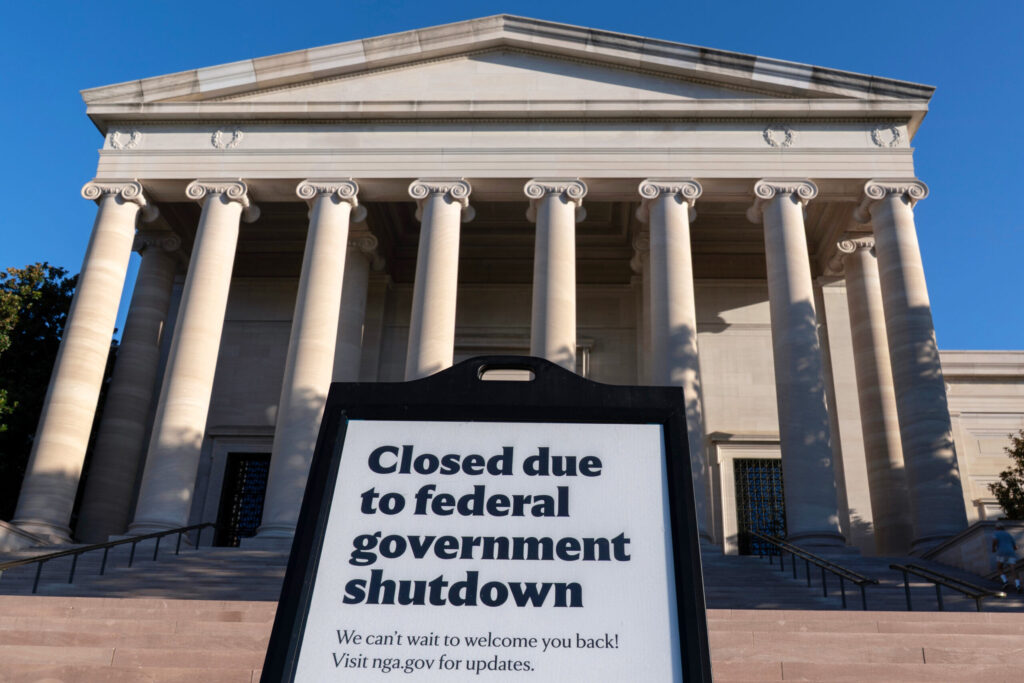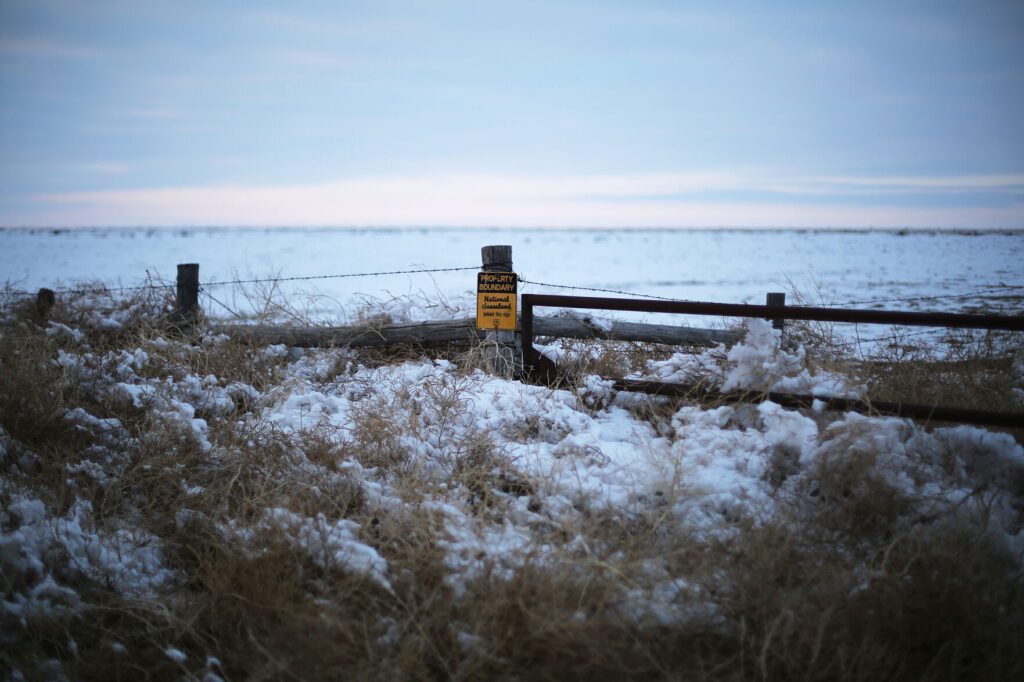Perspective: End I-70’s winter wipeouts
By Greg Fulton and Grier Bailey


It’s October, and while fall has just begun, we have already seen the first snow in the mountains. Typically, we will experience a major snowfall in the high country during this month and with it, we are likely to see delays, closures and possible gridlock on I-70 in the mountains.
Unfortunately, with this occurrence and the travel problems associated with it, the blame game will begin with many in the public, along with some local and state officials, pointing fingers at truck drivers and the trucking industry as being the primary cause of the problems. Its easy to fault trucks because they are the largest vehicles on the road, and if a road closes, many people jump to the conclusion that the truck in the middle of the queue is the cause of the closure even if it was caught up in the event like others.
It doesnt need to be this way. Certain actions and programs, already in place in several other states, can and should be instituted here to improve safety and operations on the corridor and reduce the number of incidents, closures, crashes and delays that occur during the winter on I-70.
In regard to trucking, its important to understand that trucking companies and their drivers would prefer not to be on our highways in those conditions. Navigating an 80,000-pound truck in snow and ice is challenging. Unlike others, though, who may be traveling for leisure on I-70 during such weather, truck drivers have little choice; they are transporting valuable goods that are vital to our economy and well-being.
To the extent possible, truck drivers do try to avoid peak periods as witnessed by the fact that trucks make up only about 2% of the traffic during peak periods on I-70. Of those trucks, a large percentage of them during these periods are traveling to make deliveries to locations in the mountains or on the West Slope, as a significant portion of food, fuel and medical supplies comes from distribution centers in the Denver area. Many businesses and residents in those communities risk running out of critical products if they dont receive a truck shipment within 48 hours.
Toward addressing the problem of closures and delays on I-70, we have heard some call for an increase in fines on truck drivers for failing to apply chains. What those individuals may not realize is that Colorado already has the highest fines in the country. Its also not the trucking companies that pay the fines, it is the driver, For someone making about $75,000/year, a $1,300 chain law fine represents 1.7% of their gross income.
We do not condone anyone who fails to comply with the chain law, but the issue is not always as black and white as some believe it is. In some cases the messaging that the chain law has gone into effect occurs after the driver has traveled passed that signage and was unaware of it. Second, chains break especially when trucks may be required to drive on dry or merely damp roadways for any period of time. If a driver has only one set of chains and one of the chains snaps, the driver is out of compliance and out of luck. Finally, there are several alternate traction devices that truck drivers may use in lieu of chains that are in compliance with the chain law.
We also believe it is unfair to seek higher fines on truck drivers when the state has not created an environment and conditions where truck drivers can safely comply with the law.
Like other workers in our society, truck drivers deserve a safe work environment. That includes a sufficient number of chain sites to safely apply and remove traction devices to comply with the chain law. Unfortunately, the current situation on I-70 and many other mountain highways in Colorado falls short of meeting that objective today, which contributes to the problems during storms and unfairly places truck drivers at risk of injury. Asking truck drivers to apply chains on the shoulder of a highway, less than two feet from traffic where automobiles are whizzing past at high speeds on icy roads, as is the case today along many Colorado highways, is unfair to those individuals and places those drivers at serious risk. Sadly, several drivers have been killed and others injured while applying chains on the shoulders in our state.
Along with a lack of adequate chain stations, there has been a serious shortage of truck parking throughout the state for a number of years. Truck parking is essential for truck drivers in providing safe locations where they can take their mandatory 10-hour rest break or, in the case of a major storm, park and wait it out. Unfortunately, the truck parking shortage has gotten worse on I-70 with substantial growth on the West Slope and greater freight movement across our country. In fact, the I-70 mountain corridor has one of the greatest deficiencies for overnight as well as emergency parking today in the country, and when major storms occur, that problem is magnified. One solution would be to identify and communicate temporary truck parking sites in the corridor where truck drivers may choose to wait out the storm.
Over the last several years in meetings at the legislature and with state and local officials, we have advocated for a series of other safety strategies that, combined with more chain-up/down sites and truck parking in the I-70 corridor, would greatly enhance safety and reduce problems related to closures and delays on I-70. These proposed actions are not new but represent proven strategies that have been deployed for many years with success in other states including California, Oregon and Washington. Those states receive similar inclement weather in their mountains as Colorado, but they have far fewer problems regarding roadway closures and delays during winter, largely due to these actions.
The recommended actions include establishment of chain checkpoints on both ends of the I-70 mountain corridor prior to and during major storms. This action is very impactful as it ensures that only vehicles with traction devices and suitable tires for conditions are allowed access into the corridor. At these checkpoints every vehicle is quickly checked to see whether the vehicle has chains in the case of trucks or adequate tires or other traction devices for automobiles. If they don’t, law enforcement officers turn them around. This prevents drivers whose vehicles arent properly prepared from accessing the corridor and becoming a problem by losing traction or skidding into other vehicles.
Another action that should be implemented as early as possible is a chain-assist program. This is a program where private contractors are deployed in chain stations and truck drivers can choose to pay the group to apply and remove their chains. This helps many drivers who, while they have chains, may be unfamiliar with applying them. This program expedites the process of applying chains and frees up space for other trucks by expediting the process.
Finally, its important that we have an adequate number of state Transportation Department maintenance staff to keep the highway open and State Patrol personnel for enforcement. The prohibitive cost of housing in the mountain areas has made it difficult for these types of personnel to afford to live there, which has led to significant turnover and shortfalls in staffing that impact how effective these groups can be during major storms. Its critical that the state address this housing problem and provide funds to build housing to accommodate state employees or provide the necessary stipend to make it more affordable for employees to work and live in these areas.
In discussing the challenges on I-70 and possible solutions with state officials and elected representatives, we have heard the same refrain for a number of years regarding a lack of funding and resources to implement these actions. At the same time, we will all be reminded, as closures occur, of the substantial costs associated with closures and delays on I-70. Those costs and the real possibility of more truck drivers being killed or injured while trying to comply with the chain law, or other motorists being injured because of unprepared drivers, would appear to greatly outweigh the costs associated with implementing the strategies that have been undertaken elsewhere, which have enhanced safety and reduced travel problems.
Greg Fulton is the president of the Colorado Motor Carriers Association, which represents more than 600 companies directly involved in, and affiliated with trucking in Colorado. Grier Bailey is executive director of the Colorado/Wyoming Petroleum Marketers Association.














